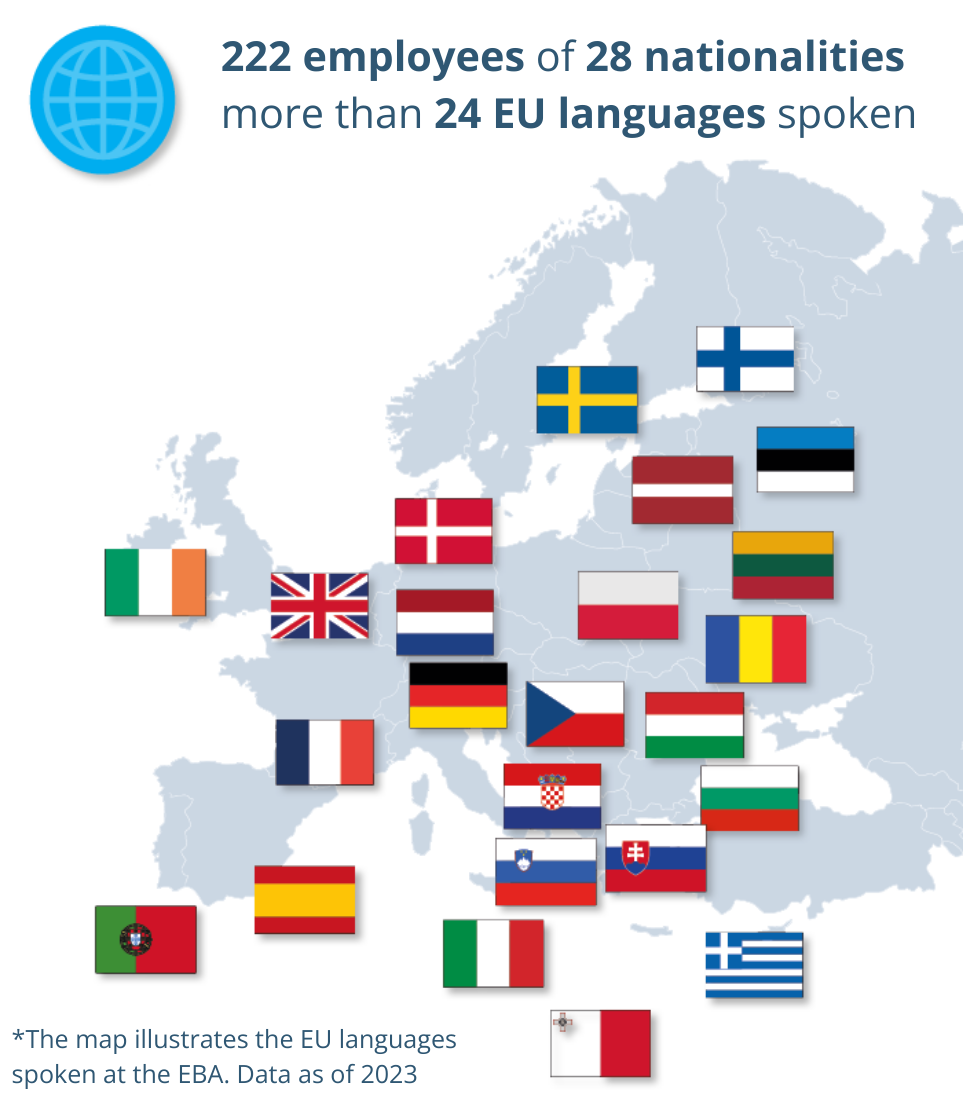EBA at a glance

The European Banking Authority (EBA) is an independent EU Authority which works to ensure effective and consistent prudential regulation and supervision across the European banking sector. Its overall objectives are to maintain financial stability in the EU and to safeguard the integrity, efficiency and orderly functioning of the banking sector.
The main task of the EBA is to contribute to the creation of the European Single Rulebook in banking whose objective is to provide a single set of harmonised prudential rules for financial institutions throughout the EU. The Authority also plays an important role in promoting convergence of supervisory practices and is mandated to assess risks and vulnerabilities in the EU banking sector.
The EBA was established on 1 January 2011 as part of the European System of Financial Supervision (ESFS) and took over all existing responsibilities and tasks of the Committee of European Banking Supervisors.
EBA at a glance [en]: PDF
The European System of Financial Supervision (ESFS)
The European system set up for the supervision of the financial sector is made of three supervisory authorities: the European Securities and Markets Authorities (ESMA), the European Banking Authority (EBA) and the European Insurance and Occupational Pensions Authority (EIOPA). The system also comprises the European Systemic Risk Board (ESRB) as well as the Joint Committee of the European Supervisory Authorities and the national supervisory authorities.
Whilst the national supervisory authorities remain in charge of supervising individual financial institutions, the objective of the European supervisory authorities is to improve the functioning of the internal market by ensuring appropriate, efficient and harmonised European regulation and supervision.
Building a stable banking sector across the EU

The EBA is an independent EU agency established in 2011 at the height of the financial crisis. Its objective is to contribute to financial stability across the EU and safeguard the integrity, efficiency and orderly functioning of the EU banking sector.
Its mission is to build a single regulatory and supervisory framework for the entire banking sector in the 27 EU Member States, so as to ensure an efficient, transparent and stable Single Market that is beneficial to consumers, businesses and the broader economy in the EU.
Diverse nationalities and languages

Academic and professional background
The EBA staff are all specialists in their own field. While many hold PhDs and secondary level diplomas, the minimum requirement for an expert position at the EBA is the completion of university studies attested by a diploma.
For working purposes, all candidates are expected to have an excellent knowledge of English, both written and spoken, as well as thorough knowledge of one additional EU language.
Traineeships


The EBA offers traineeship opportunities addressed to university graduates at the beginning of their professional career.
The traineeship candidates are expected to have completed the first cycle of university education and have obtained a full degree certificate or its equivalent by the closing date of applications.
EBA offers unique benefits


- Salaries are competitive and weighted by a correction coefficient applicable for Paris. For staff members recruited from outside France, an expatriation allowance is paid.
- The basic leave entitlement is two days per calendar month, but staff are entitled to additional days of leave depending on the type of contract, age and grade.
- On top of the basic salary, a number of allowances may be added for employees with children. Flexible working hours are also offered to allow staff finding their own balance between private and professional lives.

